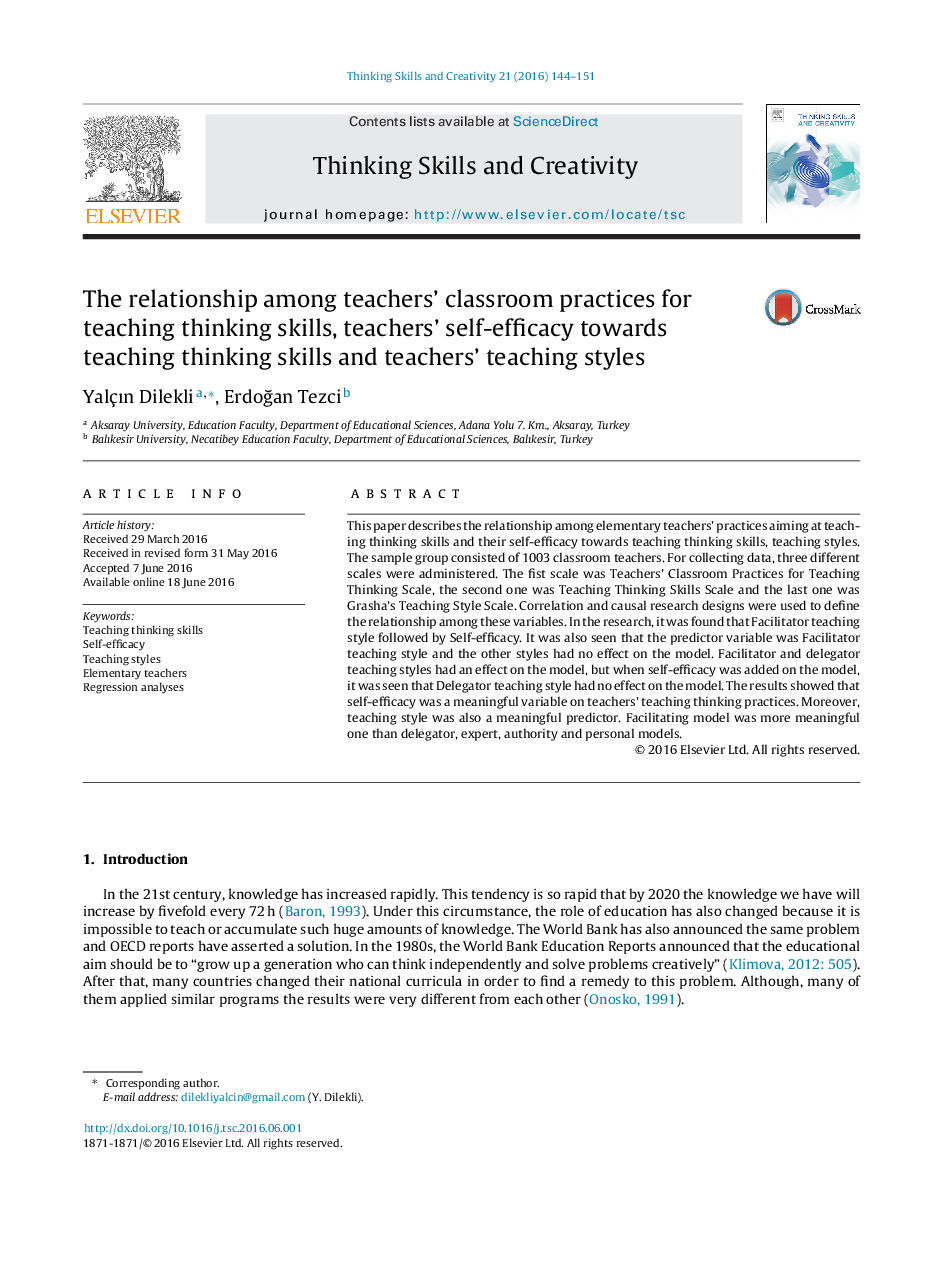| کد مقاله | کد نشریه | سال انتشار | مقاله انگلیسی | نسخه تمام متن |
|---|---|---|---|---|
| 375518 | 622800 | 2016 | 8 صفحه PDF | دانلود رایگان |
• Self-efficacy was a meaningful variable on teachers’ teaching thinking practices.
• Teaching styles were a meaningful predictor on teaching thinking practices.
• Facilitating teaching style was more meaningful one than others teaching styles.
This paper describes the relationship among elementary teachers’ practices aiming at teaching thinking skills and their self-efficacy towards teaching thinking skills, teaching styles. The sample group consisted of 1003 classroom teachers. For collecting data, three different scales were administered. The fist scale was Teachers’ Classroom Practices for Teaching Thinking Scale, the second one was Teaching Thinking Skills Scale and the last one was Grasha’s Teaching Style Scale. Correlation and causal research designs were used to define the relationship among these variables. In the research, it was found that Facilitator teaching style followed by Self-efficacy. It was also seen that the predictor variable was Facilitator teaching style and the other styles had no effect on the model. Facilitator and delegator teaching styles had an effect on the model, but when self-efficacy was added on the model, it was seen that Delegator teaching style had no effect on the model. The results showed that self-efficacy was a meaningful variable on teachers’ teaching thinking practices. Moreover, teaching style was also a meaningful predictor. Facilitating model was more meaningful one than delegator, expert, authority and personal models.
Journal: Thinking Skills and Creativity - Volume 21, September 2016, Pages 144–151
